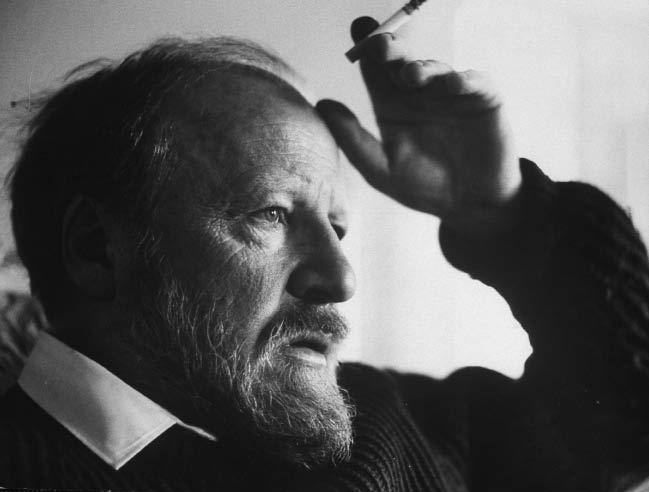This is a lovely book. Judy Golding writes of her father —indeed of both her parents — with candour, humour and great insight and perception
This is a lovely book. Judy Golding writes of her father —indeed of both her parents — with candour, humour and great insight and perception. More than that, here is an exemplary memoir of childhood, not remorselessly chronological, but drawing on the jumbled past to give an account of what it was like to be a child in an unusual family.
She describes an intense marriage, which was devoted and intermittently stormy. She sees herself and her brother David as always taking second place, especially as far as their mother was concerned. William Golding had dumped his longstanding girlfriend the moment he met Ann, a beautiful, vibrant and strong personality, who was passionate about him all her life, as well as being exasperated by him on occasion.
Judy writes of her mother with tact and delicacy, but it is clear that her relationship with her father was for her the crucial one: ‘I didn’t hate her. I simply knew I couldn’t rely on her, because she wasn’t very interested.’ And, indeed, one reads with surprise that Judy used to be put on a bus alone, aged five, to make the hour-and-a-half journey to her grandparents in Marlborough, a casual approach to parenting that would have the social services taking an interest today.
But it wasn’t all like that. This was a tightly knit family, but one for which circumstances changed dramatically. Life with a father who was an impecunious schoolteacher became, by the time Judy was in her teens, life with a novelist whose burgeoning fame brought journalists, television crews and a more cushioned lifestyle.
It brought also a revised attitude from neighbours and local society: a puzzled and not entirely admiring one. ‘The epithet “intellectual” was not a compliment.’ The Goldings were left-wing; he was bearded and wore scruffy clothes. When he began to write books this did not go down well in 1950s Wiltshire. One is reminded that the social climate of the day was not far removed from that of pre-war times. John Carey’s superb biography records the comments made by the apparatchiks at the Oxford University Appointments Committee after interviewing Golding in the late 1930s that he was ‘not quite a gent’ (though suitable perhaps for certain kinds of schoolmastering) and ‘NTS’ — Not Top Shelf.
Judy also tells the story — and the blood boils once again — of some jack-in-office thus filing William Golding. And it matters, because both Carey and Judy discuss the extent to which the social rigidities of the time affected Golding, prompting a life-long insecurity, with class becoming ‘a real source of fear, a sort of bear pit in the drawing room’. But it prompted also that short, brilliant, exuberant novel The Pyramid, in which he skewered with exquisite precision the pretensions and hypocracies of a fictional town, actually the Marlborough in which he had grown up.
Judy’s memoir is the perfect complement to John Carey’s biography. Carey wound together the life and the writing in a work that is a powerful combination of story- telling and critical reflection. Now the daughter gives a more intimate view of that life, shot through with arresting detail, dry wit and the wisdoms of hindsight. There was tension; she talks of ‘the many submerged rocks in the choppy sea of our family life’, of her brother’s mental illness, of her own breakdown when young, and of Golding’s drink problem in later life that was an anguish both to himself and to those around him.
But there was also fun messing about in boats, and the high drama of two sea-going episodes when the family was run down in the channel by a huge container vessel on one occasion, and their yacht came near to going down in a storm on another. Boredom was not on offer in the Goldings’ home life. She reinforces Carey’s account of Golding’s struggles over his writing — his self-doubt, his sensitivity to criticism, the long years when he could hardly write at all. And of course she is able to do so from the double vantage point of proximity and, now, acute consideration of the works she knows so well.
In a coda to her book, she talks of having wanted to ask questions, to try to find out what made her father become a writer, and such a good one, and to what extent parents shape their children’s lives, concluding wryly that her answers to both questions are incomplete.
Maybe, but her attempt has resulted in a book that deserves to become a classic memoir of childhood, in which her loving but clear-eyed portrait of a man she sees now as two people — warm and embracing but also at times self-centred and cruel — is embedded in a shrewd and spirited account of what it is to be a child, with the parents that you have been dealt, at the time and place decreed. An absorbing read, a must for Golding devotees, and, frankly, for anyone.






Comments